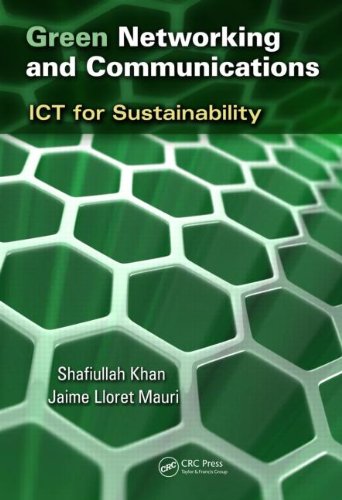

Most ebook files are in PDF format, so you can easily read them using various software such as Foxit Reader or directly on the Google Chrome browser.
Some ebook files are released by publishers in other formats such as .awz, .mobi, .epub, .fb2, etc. You may need to install specific software to read these formats on mobile/PC, such as Calibre.
Please read the tutorial at this link: https://ebookbell.com/faq
We offer FREE conversion to the popular formats you request; however, this may take some time. Therefore, right after payment, please email us, and we will try to provide the service as quickly as possible.
For some exceptional file formats or broken links (if any), please refrain from opening any disputes. Instead, email us first, and we will try to assist within a maximum of 6 hours.
EbookBell Team

4.1
50 reviewsAlthough the information and communication technology (ICT) industry accounted for only 2 percent of global greenhouse gas emissions in 2007, the explosive increase in data traffic brought about by a rapidly growing user base of more than a billion wireless subscribers is expected to nearly double that number by 2020. It is clear that now is the time to rethink how we design and build our networks.
Green Networking and Communications: ICT for Sustainability brings together leading academic and industrial researchers from around the world to discuss emerging developments in energy-efficient networking and communications. It covers the spectrum of research subjects, including methodologies and architectures for energy efficiency, energy-efficient protocols and networks, energy management, smart grid communications, and communication technologies for green solutions.
Considering the spectrum of energy-efficient network components and approaches for reducing power consumption, the book is organized into three sections: Energy Efficiency and Management in Wireless Networks, Cellular Networks, and Smart Grids. It addresses many open research challenges regarding energy efficiency for IT and for wireless sensor networks, including mobile and wireless access networks, broadband access networks, home networks, vehicular networks, intelligent future wireless networks, and smart grids. It also examines emerging standards for energy-efficient protocols.
Since ICT technologies touch on nearly all sectors of the economy, the concepts presented in this text offer you the opportunity to make a substantial contribution to the reduction of global greenhouse gas emissions.